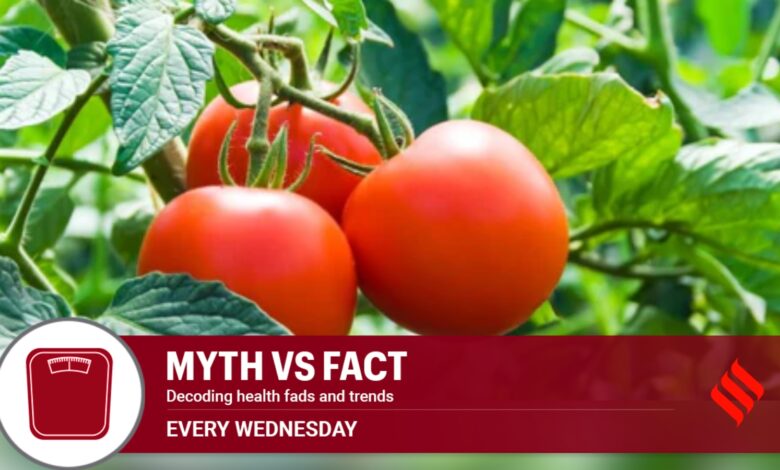Are raw carrots, tomatoes better than when they are cooked? | Health and Wellness News

Written by Surabhi Sharma
Carrots, spinach, asparagus and tomatoes are always considered as nutritional superstars, full of vitamins, minerals and antioxidants. But it’s a myth that eating them raw can help preserve nutrients better than when they are cooked. Many argue that cooking destroys vitamins and minerals present within the vegetable. While this is partially true for any heat-sensitive nutrient like vitamin C, the reality is more nuanced.
Fact is raw vegetables aren’t always the healthier choice. The fibre and natural compounds of raw vegetables can cause bloating, gas or discomfort, especially among those with sensitive stomachs and other issues in the gut.
Carrots: These contain beta-carotene, which is a precursor to vitamin A that is crucial for eye health and immune function. Consuming them raw maximises the concentration of vitamin C and fibre. But steaming them can help enhance the bioavailability of beta-carotene, thus helping the body in its absorption.
Spinach: It is rich in iron, calcium, vitamins A and K. However, oxalates in raw spinach can chelate calcium and iron, making them less available for absorption and triggering the formation of kidney stones in sensitive individuals. Cooking decreases the levels of oxalates. Raw spinach is at best a nutritious salad ingredient when consumed in small portions.

Asparagus: It is rich in folate, fibre and antioxidants like glutathione, which will aid liver detox. The raw asparagus has a crunchy texture and retains all vitamin C. However, cooking it brings out the properties of antioxidants.
Tomatoes: These are high in vitamin C, potassium, and lycopene, a powerful antioxidant with established heart health and anti-cancer properties. Cooking intensifies lycopene, so tomato sauces and soups are a very healthy meal.
Always balance your raw and cooked vegetable intake.
Experiment with textures: Try blending raw veggies into smoothies, grating them into salads, or lightly steaming them for what works best for your body.
Combine with healthy fats: Add olive oil, avocado, or nuts to raw veggies to enhance the uptake of fat soluble vitamins A, D, E, and K.
Pay attention to your body: If you feel uncomfortable after consuming raw vegetables, then cook them, or seek a nutritionist’s advice on what works best for you.
The key lies in personalization for a healthy diet. Assess your body’s needs, experiment with preparation methods, and go for variety to reap the benefits of these versatile vegetables.
(Dt Surabhi Sharma is clinical nutritionist, Max Super Speciality Hospital, Gurugram)







